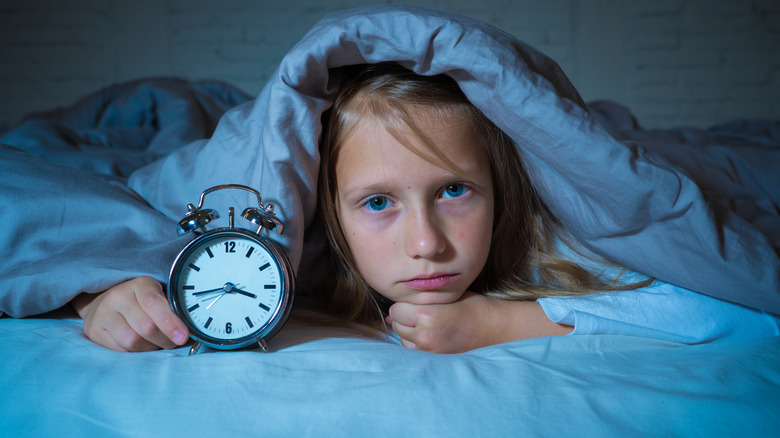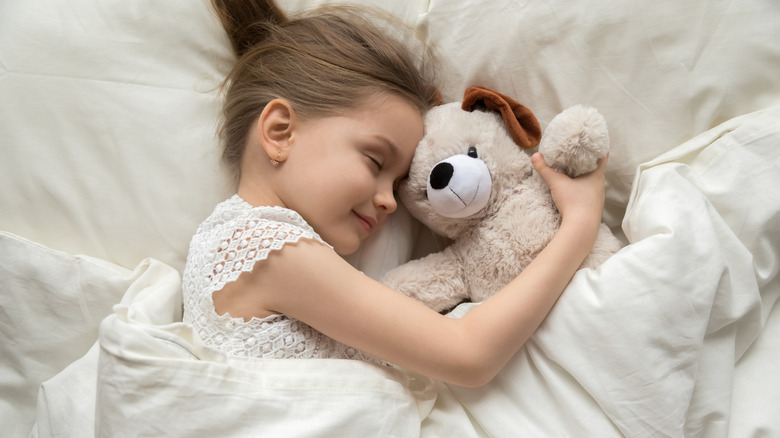Can Kids Take Melatonin?
Sleep troubles are common in children and can have many consequences for their physical and emotional wellbeing. In fact, approximately 75% of school-aged children do not get enough sleep (via Healthline). This in turn can affect their mood and ability to perform in school. Some studies also link poor sleep in kids to long-term health issues.
You've likely heard of melatonin as a popular remedy to help induce sleep in both adults and children. Often called the "sleep hormone," melatonin is a hormone your brain naturally produces that promotes sleep by setting your body's circadian rhythm. Levels of melatonin are higher in the evening hours before bedtime, prompting your body to yearn for sleep. However, these levels begin to dip in the hours before waking.
Melatonin in supplement form can be taken to help with a variety of sleep-related issues, including insomnia, jet lag, sleep disorders related to mental health, and occasional trouble falling asleep. In the United States, melatonin is sold over-the-counter. In other countries, melatonin must be prescribed by a medical physician for use.
Is melatonin safe for kids?
Melatonin is considered generally safe for adults, but you may have questions about its safety for children. Studies have shown that in the short-term, melatonin is safe to use in kids. Still, some children may experience side effects like headaches, nausea, dizziness, excessive sweating, bed wetting, morning grogginess, and stomachaches (via Healthline). These side effects are considered minor and there have been no reports of serious side effects in kids, even when large amounts of melatonin have been taken. For example, according to the Nationwide Children's Hospital, the Central Ohio Poison Center has managed hundreds of child cases per year involving unintentional ingestion of melatonin gummies without any significant side effects.
Data is lacking when it comes to the long-term effects of melatonin in kids. As such, many pediatricians are wary to recommend melatonin for children with sleep issues. Additionally, animal studies have indicated the possibility that melatonin can interfere with hormone activity during adolescent development (via Boston Children's Hospital). There's no evidence to suggest this is true in humans, but experts say since there's no long-term clinical trials in existence, it can't be ruled out. Talk to your pediatrician if you have concerns regarding your child's sleep and if you're considering melatonin use.


